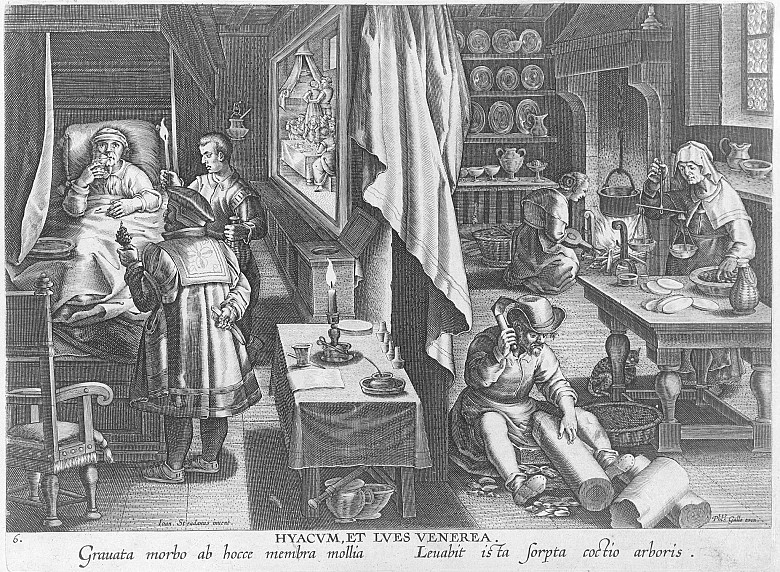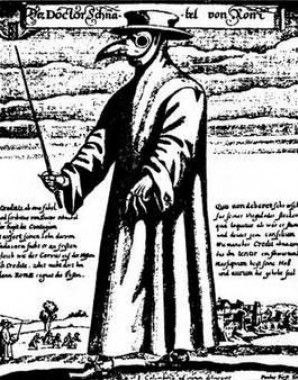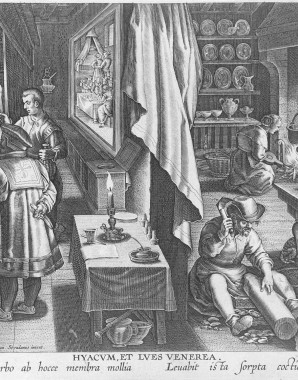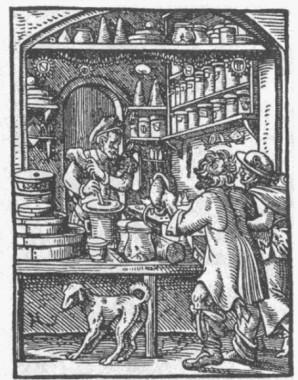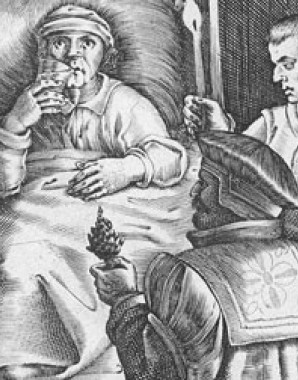Knowledge of Medicine in the Early Modern Era
Medicine in the early modern era faced numerous challenges as thousands fell victim to pandemics such as bubonic plague and syphilis. New drugs and treatments such as cupping, bleeding, purges and clysters were used in an attempt to combat diseases and epidemics. At that time knowledge of the body was dominated by the doctrine of the four humours, according to which a balance between the fluids in the body must be achieved. Medical practices frequently aimed at cleansing both body and soul. This also gave rise to new ideals of propriety and morals, replacing the medieval lack of inhibition about nudity. ‘Pure’ and ‘impure’ ailments dominated moral and medical discourse in which sufferers from syphilis and onanists were stigmatized.
